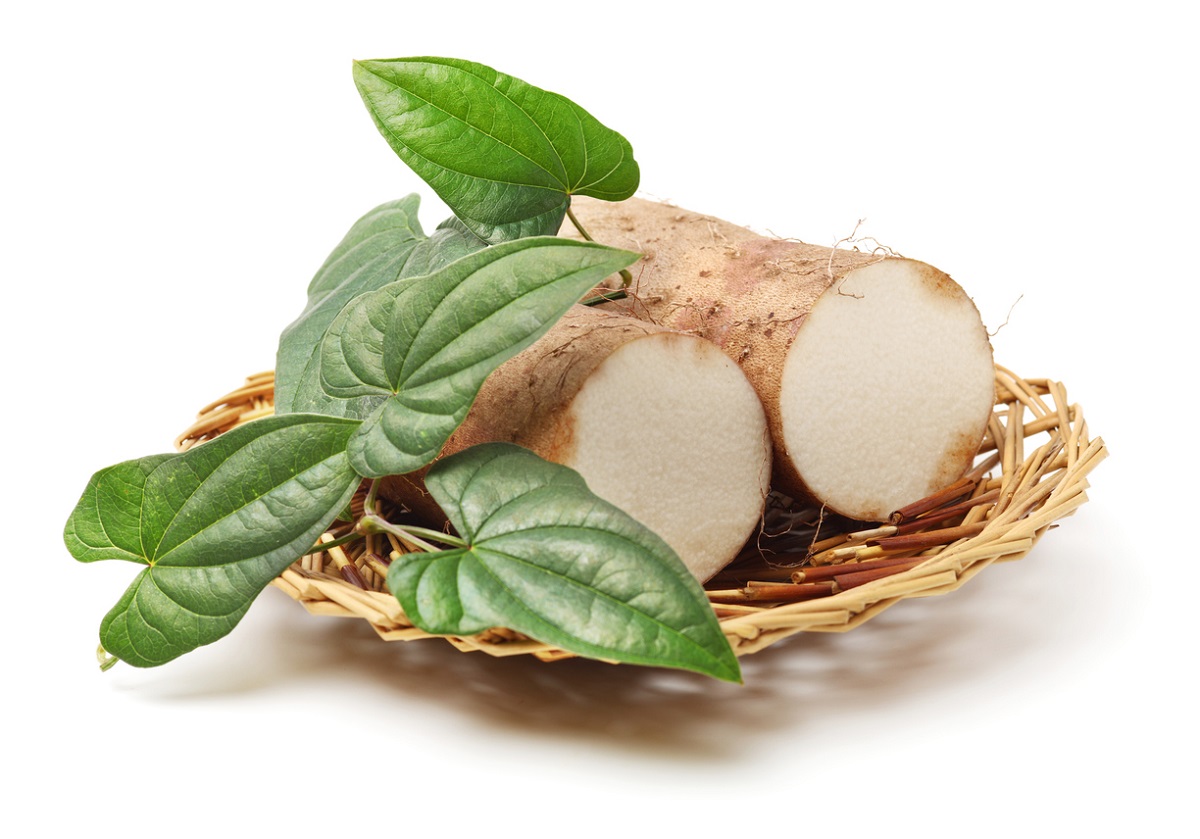
Scientists Say Modern Biotech Tools Beneficial for West Africa's Yam Industry
July 28, 2021| |
Yam is a very important crop in Africa but its industry is continuously threatened by fungal diseases that cause 50-90% of tuber yield loss. To help address this, scientists came up with a review that details the potentials of modern biotechnology tools to produce fungus-resistant cultivars without having to undergo the stringent process of traditional breeding.
Yam anthracnose caused by Colletotrichum alatae is a devastating fungal disease in West Africa. It affects all plant parts of the yam at all stages of development. Although traditional methods are used by farmers to control the disease, they still fail at providing long-term control. This along with the appearance of new and more virulent strains makes the development of improved varieties with broad-spectrum and durable resistance critical.
In their review, the researchers from Kenya and Nigeria found evidence that the development of reliable anthracnose-resistant varieties through conventional breeding using different germplasms from Asia and the adoption of genome-assisted breeding and modern biotechnology tools will swiftly help the production of anthracnose-resistance yam varieties. Anthracnose-resistant yam cultivars, on the other hand, can be developed using robust genetic transformation protocol and in planta transformation techniques, and the agroinfiltration protocols using a viral vector-based platform. Lastly, having the yam's whole-genome sequence information will allow the identification and editing of the S gene conferring resistance to fungal pathogens. The advancement of these technologies can help facilitate the production of anthracnose-resistant yam cultivars which can lead to food security and income generation for yam farmers in West Africa.
Read the full review in Molecular Plant Pathology.
| |
You might also like:
- Kenya National Biosafety Authority Approves Genetically Modified Cassava
- Biotech a Tenable Solution to Addressing Hunger in Africa, Experts Say
- Over 2,000 Nigerian Farmers Reaping the Benefits of Biotechnology
Biotech Updates is a weekly newsletter of ISAAA, a not-for-profit organization. It is distributed for free to over 22,000 subscribers worldwide to inform them about the key developments in biosciences, especially in biotechnology. Your support will help us in our mission to feed the world with knowledge. You can help by donating as little as $10.
-
See more articles:
-
News from Around the World
- RNA Breakthrough Creates Rice and Potatoes that Grow 50% More; Tolerate Drought
- Meta-analysis Shows that Future Food Demand Will Increase between 35-56% over the Period 2010-2050
- Golden Rice Now Approved for Commercial Planting in the Philippines
- Gene Drive Regulations to Evolve as the Technology Advances -Experts
- Scientists Say Modern Biotech Tools Beneficial for West Africa's Yam Industry
- UPLB's Bt Eggplant Approved for Consumption in the Philippines
- Leading Groups Urge UK Government to Take Action to Harness Unique Contribution of Plant Genetic Innovation
- Study Finds Genome-Edited Foods Found Generally Acceptable by UK Consumers
-
Research Highlights
- Study Reveals Gene Involved in Stem Rust Resistance in Wheat
-
Plant
- CRISPR Takes Out Bitter Compounds in Chicory
- Book Tackles Genome Editing Techniques for Climate-Smart Crops
- First GM Marsupials Developed with CRISPR
-
Read the latest: - Biotech Updates (April 17, 2024)
- Gene Editing Supplement (April 10, 2024)
- Gene Drive Supplement (February 22, 2023)
-
Subscribe to BU: - Share
- Tweet

